Mar 2, 2024
Sue Malone
Sue Malone is the founder of Strategies For Small Business – a prominent small business advocate helping individuals access capital to start or expand their businesses. Since 2010, she has helped fund more than 30,000 businesses. Sue has authored several equity and loan programs and ranked #1 in the country for SBA Community Express (non-veterans) and Patriot Express (veterans and their spouses) Loan Programs.
One Line Life Lessons from Sue
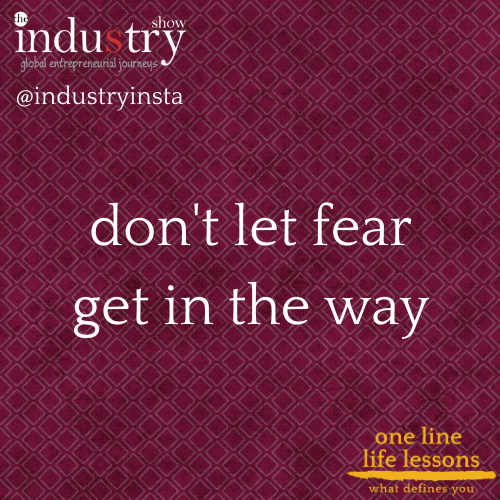
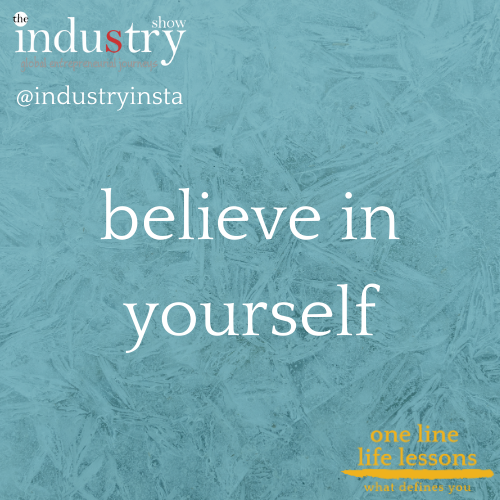
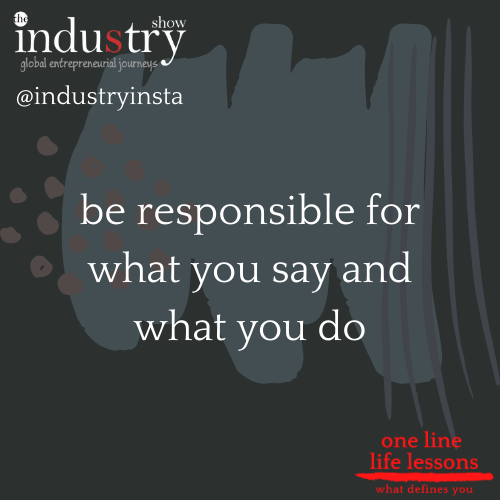
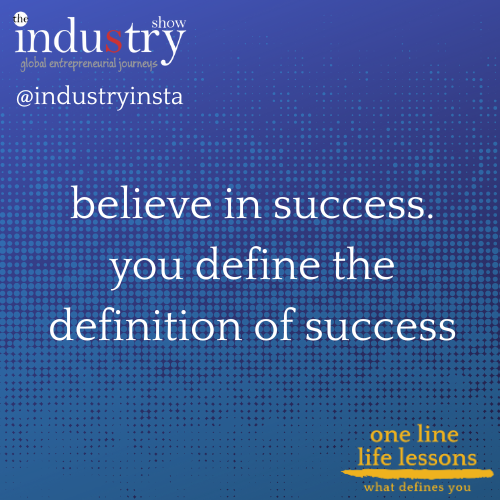
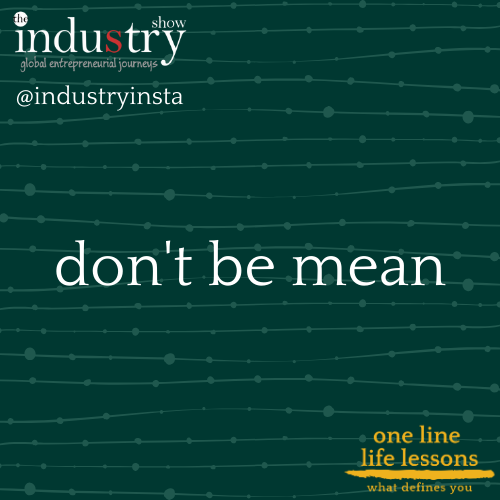
Episode Highlights
- 00:00:00 – Introduction: Nitin Bajaj introduces Sue Malone, an advocate for small businesses.
- 00:00:11 – Sue’s Mission: Sue expresses her passion for supporting small businesses, driven by her belief in giving people opportunities to succeed.
- 00:01:38 – Importance of Small Businesses: Discussion on small businesses as the backbone of the economy, contributing to job creation and innovation. Sue emphasizes the adaptability and willingness of small businesses to try new things.
- 00:03:14 – Impact and Metrics: Sue highlights her efforts in providing dignity and opportunities to entrepreneurs, particularly in economically deprived areas. Mention of community support groups for small businesses and their positive outcomes.
- 00:05:54 – Challenges and Opportunities: Identifying government regulations as a significant challenge for small businesses. Emphasizing seizing opportunities and overcoming fear as keys to entrepreneurial success.
- 00:08:27 – Lessons from Failures and Successes: Sue shares personal failures, including a business idea involving Russia and a missed opportunity, contrasting with a heartwarming success story of a loan recipient.
- 00:10:48 – Personal Interests: Sue enjoys volunteering and outdoor activities like hiking.
- 00:11:40 – Life Lessons: Sue shares insights on defining success, overcoming fear, and being responsible and kind.
- 00:13:28 – Conclusion: Gratitude expressed between Nitin and Sue for sharing experiences and inspiring others.
Show Transcript
Transcript - Full Episode
Nitin Bajaj: Hey everyone. Welcome to The Industry Show. I’m your host Nitin Bajaj, and joining me today is Sue Malone. Sue, welcome on the show.
Sue Malone: It’s a pleasure to be here.
Nitin Bajaj: Pleasure to have you here. Let’s start with the simplest of questions. Who is Sue?
Sue Malone: Who is Sue? Sue’s a crazy woman that believes in small businesses, and she decided to make that her goal in life is to help small businesses.
Nitin Bajaj: That’s awesome and I would love to hear more and share that with our audience. Tell us, it’s hard to describe in one small bucket what you do, so I’m gonna open it up and ask you to tell us what do you do? What’s your mission, what’s your vision? And most importantly, you could be doing so many different things. Why do this?
Sue Malone: First of all, the reason why I do it is ’cause I believe in small business and I love to give people an opportunity and a chance to succeed. So that’s what drives me. And people always ask, you do so many things, but when you really boil it down in a pot of water, I do small business. I live and breathe small business because it’s people like you that come up with new ideas that take it to the next level, that hire people that expand your horizons. And every large business starts small. They all start with an idea and a dream, and you’ve gotta give ’em the backing to do it. Whether it’s friendship, whether it’s knowledge, whether it’s connections, or. And I really believe in that.
Nitin Bajaj: So true, and especially in this country, small businesses are the backbone. I remember reading a crazy, 90 some percent of the net new jobs come from small businesses. And you can correct me on that data point ’cause you live and breathe in this ecosystem. So tell us a little more about that.
Sue Malone: It’s absolutely true. There’s 28 million small businesses now, a lot of them are single or maybe have less than five employees, but that’s where it all starts. And my favorite is people will come to me and they’ll say, I’m gonna start with a small business ’cause it’s so easy. And I’m thinking, okay, that is not the case. But if you wanna have a really good life. Owning a small business is terrific because there’s more millionaires in the small business sector than anywhere else. It, and it’s great fun. And the other thing I like about small businesses is they have to be adaptable. So they’re willing to try new things. A lot of people that work in great cubicles, which is nothing is wrong with them wrong with that is they stale. I don’t wanna be stale. The economy doesn’t move if stale.
Nitin Bajaj: True. That is so true. And, give us a sense, you’ve helped so many people across your career. Give us a sense of that impact, the geographies you’ve worked in, the people you’ve enabled to live their dream, to be the best versions of themselves. Give us a sense if I just wanted to capture that. What would be the best metric?
Sue Malone: That’s probably the toughest question I’ve ever had. I knew you were smart. You know what it really is? It’s giving people dignity. It’s giving people a chance and an opportunity no matter where I am, if I’m out in, if I’m in Alaska, up in the tundra, or if I’m way down in Florida, most people. What they want is they wanna be able to put a roof over their head, food on their table and earn a living. So that’s what as a common denominator through all of it. How far they take it, that’s up to them and only they can decide what they wanna do. You can’t pull ’em and pull ’em if they don’t wanna do it. Some of, some people just wanna make enough. To live on. Other ones wanna be the next Google. So it all depends upon the person. But the other thing that I have seen is because I do both debt inequity, I don’t do grants because people have to have skin in the game. And when they have skin in the game, they also get their dignity. And one of the greatest things that that always comes to mind in, in, in a co in a couple cities that we did this, I did this in, is I’m in a really poor section of the city that is socially and economically deprived. But what we did is I funded these businesses in small increments, but we also set up neighbor. Hood support groups, community groups. So the small businesses would have a place to come and discuss their ups and their downs and what worked, and then they could support each other. And then let’s say all of a sudden there’s a contract that’s coming out through the city. They could pull their resources together to get that. So now they have two different avenues of revenue. They have both. Private and public. So if the economy goes, it’s like a teeter-totter, you can balance it out. So that’s probably some of the most wonderful things that, that I have been able to accomplish. I’ve been ru in rural Appalachian mountains where in one town I don’t think there was a head of teeth. You put ’em all together. You have to give people a chance.
Nitin Bajaj: That is so true, and you did start by saying you’re crazy. So that adds up. Amongst the myriad of things and challenges you come across, which I know there is plenty, especially when you are working with people that want to get started that probably come with the notion that small business is easy, and of course the challenges that come about in the macro and the microeconomics. If you were to take a step back and tell us what is the one big challenge you face, what would that be?
Sue Malone: Government regulations, it’s, it costs small businesses way too much money and a lot of, they don’t need all those regulations.
Nitin Bajaj: That is so true. And if it were not for those regulations, I would imagine there would be a lot more successful small businesses that would be open and that would continue to stay for much longer. On the flip of challenges come opportunities, what’s the one most exciting one that you can share?
Sue Malone: Oh, there’s so many opportunities and when you see those opportunities, go for it. Okay? You have to do a little bit of research, but don’t do too much. ’cause then you’ll talk yourself out of it. Go down that path. See?
Nitin Bajaj: Great.
Sue Malone: They’re gonna talk about your family next dinner, but in two weeks they’re gonna talk about your Uncle Sam. So you might as well just forget about it. Okay? So give it a shot, go try it, because if you don’t, somebody else will. And some of the biggest challenge I see in for small businesses is the four letter word fear. It’s the worst. It’s absolutely the worst word in the dictionary. The worst one, because that’s what talks most people. Now is everyone set up and have the backbone to be an entrepreneur? No. No. Some people need steady paychecks and that’s fine. That’s fine. They like to be told what to do and that’s terrific. There’s nothing wrong with that. But if you wanna have new ideas, if you wanna have new concepts, you gotta be a free thinker. Gotta think outside of the box.
Nitin Bajaj: So true. And I think the flip side of fear to me is regret, and I know us. We don’t want to live in regrets, so you might as well try and fail and learn. I. Rather than look at regrets.
Sue Malone: Yep. Because then you’re kicking yourself all the way to the bank. I could have been that. I could done that.
Nitin Bajaj: Yes, so true. Now, as we look at opportunities, as we look at what more is out there, I wanna pause. I wanna look in the mirror and ask you for two moments in your life, one that did not work out as you had expected. And was a failure became a lesson, and another one that blew your own expectations and became a success beyond your imagination.
Sue Malone: My failure was when I came up with a great idea to import. Russia, I’m still waiting for Putin to pay me. That was 15 years ago, so I keep sending him a bill. I was sending it monthly now, then I went quarterly. Now I’m yearly and it still probably is in the trash. But it was a great idea and it would’ve made a lot of people happy and I would’ve made money on it. So that was a big failure. The other big failure was early on in my career, I was offered an opportunity that was absolutely unbelievable and I was too frightened to take it. And they were even gonna back me financially to do it. Obviously they wanted some collateral and at that time it would’ve been my home with my three little babies in it. And I was too nervous to do it. So someone else came in and did it and then five years later it sold for 22 million. So is that regret? Absolutely. However. Fast forward to where I am today. One of the biggest things that ever that I think about all the time. Early on when I started this loan program, there was a gentleman that came to see me and he had an auto repair business, and it was in an a apartment building. There were. Six apartments and it had a covered garage carport basically. And he was fixing cars in the, in carport. So he asked for a loan ’cause he wanted to rent a space. So he had some things in his past and I thought, you know what, I’m just gonna take a chance on this fellow. So I took a chance on him. Fast forward six years later, get a phone call from this. And she said asked if I, and I said yes. And she said six years ago,
Nitin Bajaj: Wow. That is such a beautiful story. That’s awesome. And again, thank you for doing what you do. Thank you for believing and trusting and giving people an opportunity to be the best version of themselves. That’s huge. Okay. That’s a huge success. Now, before we go on to our next session, I’d love to hear from you, what do you do for fun? What do you do to de-stress and just re-energize? I.
Sue Malone: I like to be around people, so I like to do things with people. I, what, I just recently came back from Honduras working in a girl’s orphan, a little girl’s orphanage. There were 75 young girls in there. And, meeting with them, learning their language. It gave me so much joy and happiness and then letting, talking to the little girls about they could do anything they wanna do. So that’s what gives me great joy. I love outdoors. I love hiking. Love to be outside. Love nature. God gave us a wonderful world. We need to enjoy it. Don’t look at all the billboard and the weeds. So those are some of the things I like to do.
Nitin Bajaj: That’s awesome. Now that brings us to my favorite part of the show. We call that the one line Life Lessons. We’d love for you to share a few of your life lessons with us.
Sue Malone: Believe in success and it can, success can be your definition. You get to determine what the definition of success is. Not me, not your mother, not the person sitting next to you but you. So you determine that. The other thing is believe in yourself. And if you’re having a bad day, don’t let it take you out for a week. Just let it take you out for a day because the next day is a brand new start. And if you start having a tough day at eight o’clock in the morning, go back to bed and start your day at noon. You get to start your day whenever you wanna start your day and change your attitude and change your outlook on life. I already mentioned it. Fear. Don’t let fear get in the way. And it does. So many times if you are, gimme a call, I’ll walk you off the ledge or go look in the bathroom mirror and talk yourself out of it. So those are some of the things that and the other thing is be responsible for what you say and what you do. Just own up to it. It’s okay. But don’t be mean. Don’t be mean. You don’t need to be mean to people. Be responsible and be kind.
Nitin Bajaj: I love those. Sue, thank you so much for sharing your life lessons, but also more importantly for sharing your journey and story. And thank you for being you. I. You have inspired so many and you continue to do that, it’s phenomenal. Not just in terms of the economics, but again the changes it brings about in people and the confidence and the belief it gives them that they can achieve. They can go beyond the fears they have. So thank you so much. Really appreciate it.
Sue Malone: Thank you. You’re the best. Are you kidding? I’m so glad I met you. Wow. Don’t you stop doing what you’re doing.
Nitin Bajaj: We won’t. Thank you so much, Sue. Really Thank you. Thanks.
Sue Malone: Bye.



